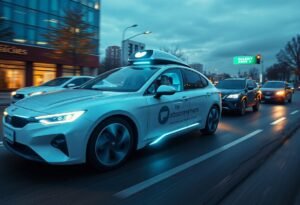Artificial Intelligence (AI) is reshaping the landscape of global economic trends by driving innovation across various sectors. Its implications stretch beyond mere efficiency gains, greatly impacting workflows, productivity, and even the nature of work itself. Understanding these economic shifts caused by AI can help organizations adapt and thrive in an increasingly competitive environment.
AI as a Catalyst for Innovation
AI is proving to be a significant catalyst for innovation in multiple industries. Companies are leveraging AI technologies to enhance product development, streamline operations, and optimize supply chains. For instance, businesses in the tech sector utilize AI-driven software to analyze customer data and improve user experience. This leads to the creation of smarter products, driving market growth and elevating standards across industries. AI’s ability to analyze vast amounts of data swiftly makes it an essential tool for companies aiming to stay ahead in their innovation game.
Impact on Global Market Trends
The integration of AI technologies is molding global market trends in unprecedented ways. As industries begin to embrace automation, traditional business models are evolving. For example, sectors like manufacturing and logistics are witnessing significant transformations due to AI-driven predictive analytics. These changes streamline operations and enhance decision-making processes, resulting in significant cost reductions and improved service delivery. Ultimately, AI’s impact on market operations enables businesses to focus more on strategic planning and less on administrative tasks.
Job Creation and Transformation
While AI is often associated with job displacement, it simultaneously fosters job creation in emerging fields. As businesses adopt AI solutions, the demand for skilled professionals to manage, develop, and maintain these systems surges. Positions in data science, machine learning engineering, and AI ethics are becoming increasingly relevant, indicating a shift in workforce requirements. Consequently, organizations need to invest in reskilling current employees to prepare for new roles that AI will create.
Economic Efficiency and Growth
AI-driven innovation can significantly enhance economic efficiency. By automating mundane tasks, organizations can allocate human resources to more intellectually stimulating activities, ultimately fostering a culture of innovation. Research indicates that companies implementing AI technologies experience notable boosts in productivity, leading to economic growth on a larger scale. Thus, the proliferation of AI catalyzes not only individual company success but also contributes to broader economic advancements globally.
Regulatory and Ethical Considerations
As AI establishes its presence in the economy, regulatory and ethical considerations become paramount. Policymakers and business leaders must collaborate to ensure that the deployment of AI technologies is responsible and equitable. This includes addressing issues such as data privacy, algorithmic bias, and the implications of an AI-driven workforce. Establishing robust regulatory frameworks will help mitigate potential risks associated with AI and promote sustainable growth driven by innovation.
The Future of AI and Economic Trends
Looking ahead, the ongoing evolution of AI will continue to affect economic trends worldwide. As technology progresses, we can expect even more profound changes in industries such as healthcare, finance, and education. Emerging applications of AI, like personalized medicine or automated financial advising, will not only redefine their respective fields but also drive further innovation in technology. Ultimately, the collaboration between AI advancements and economic trends will shape the future of global business landscapes.
Disclaimer: The information provided in this article is for educational purposes only. It should not be considered as professional advice.





















